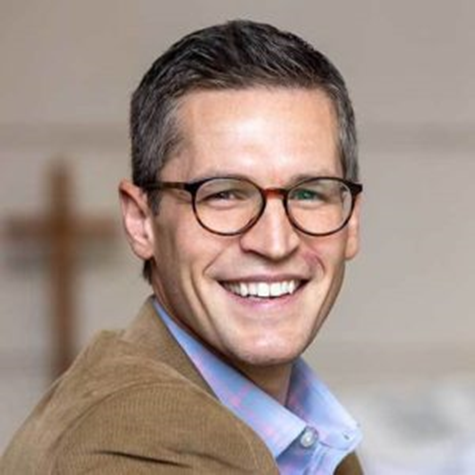I remember studying leaders from a young age. The first people I watched closely were teachers and pastors, even my parents. Later, I learned that no matter your industry, work, or experience, leaders come from all places. With that in mind, the question becomes—what is it that makes a leader? What is it—the it factor—that makes one person a leader and another person…well…not a leader?
Each August, Resurrection partners with the Global Leadership Network as a host site for the Global Leadership Summit. The GLS is a dynamic, two-day event gathering leaders across the globe to learn, share ideas and stories, and to hear from a diverse slate of leading experts from a variety of fields and backgrounds. Each year, I walk away having learned something. I’ll share a few take aways and key learnings in the next few blog posts.
Today, I’m returning to the question Craig Groeschel asked in his talk, what is IT that makes a leader? What is it, who has it, and can you lose it? Groeschel asked these questions in one of his early books on leadership called It: How Churches and Leaders Can Get It and Keep It. He recently updated the original book with a new title—Lead Like It Matters.
Here’s some good news. Then, I’ll share the bad news. The good news is every leader can get it, whatever that it factor is. The bad news, it’s easy to lose it, too. If you’ve ever wondered what it is about a leader that makes them a leader, you’re not alone. Even organizations that seem to be successful and have it, can also lose it over time.
I think of a few examples. Resurrection has launched two locations, a third later this fall, in previously closed church buildings that had long histories of success only to experience significant decline. There are star athletes who sometimes stick around too long, losing their effectiveness. Or, when I read a story of a leader who has a moral failure, I always pay attention to guard against moral failure in my ministry.
So, what is it that makes a leader? In his GLS talk this year, Groeschel suggested that leaders exist at the extremes. This doesn’t mean leaders are extreme. Instead, leaders lean into contradictory leadership qualities. For example, you might be highly confident, even arrogant at times, while also exercising healthy doses of humility. Leading with both qualities presents a paradox of leadership.
Here are several contradictory leadership qualities that effective leaders lean into. See if they relate to you. Leaders are:
Confident | Humble Driven | Healthy Focused | Flexible
Optimistic | Realistic Direct | Kind Empowering | Controlling
Urgent | Patient Frugal | Abundant
What are your top 3 contradictory leadership qualities? Which do you lean into the most? I’d like to say I utilize each of these paradoxical leadership qualities. Generally, though, I am both driven and healthy as a leader. I am often driven to a fault. My drive, constant motion, and forward movement exasperate my team. This relentless drive can also lead to burnout, especially in a stressful season like the one church leaders recently experienced. The balance to this drive includes healthy rhythms of recovery. It’s important to ask, are you recovering well? What you do to recover looks different for every person, which is why I don’t use the word rest—as important as rest is. Healthy leaders recover well, invest in life-giving activities, and recover in order to keep leading long into the future.
Instead of chasing it, whatever it is that makes a great leader, try leaning into the leadership qualities that stir you, motivate you, and inspire your team.

Joshua Clough served as Location Pastor for Resurrection Overland Park. He completed his doctorate in Practical Theology and Leadership at Fuller Theological Seminary. He runs marathons, ultra-marathons, and because he grew up in Seattle, drinks a lot of coffee.